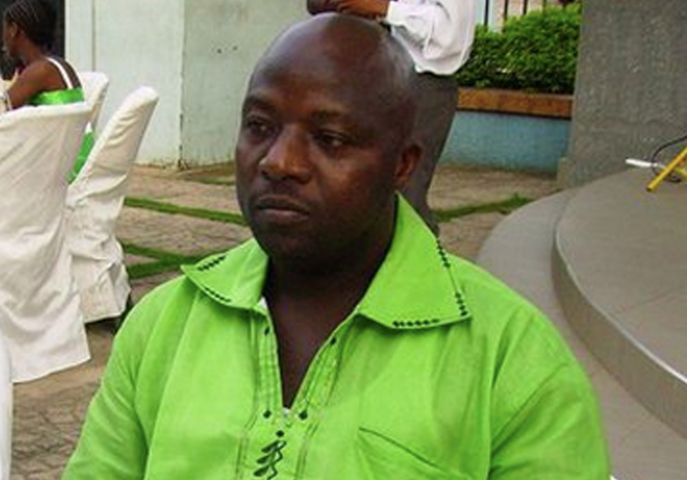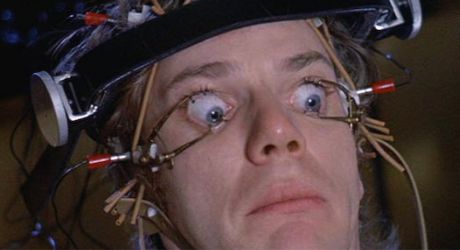
Strict Texas Law Makes Ebola Lawsuits Unlikely
Tort reform statutes and court rulings protect Texas hospitals from medical malpractice suits.

Above: Thomas Eric Duncan
![]() This story was produced in partnership with the Guardian, where a version of this story also appears.
This story was produced in partnership with the Guardian, where a version of this story also appears.
One of the unexpected lessons from the Ebola cases in Dallas may well be how thoroughly Texas protects hospitals—and their insurance companies—from answering for critical lapses in care.
When Thomas Eric Duncan entered the Texas Health Presbyterian Hospital’s emergency room on Sept. 25 with a fever and complaining of stomach pain, there’s a chance that proper treatment might have saved him from the Ebola virus that would kill him 13 days later. Instead, the Liberian man was sent home with only painkillers and antibiotics. Duncan’s family and his fiancée are haunted by the question of whether Duncan might have survived had he been properly diagnosed. Executives at Texas Health Presbyterian Hospital have admitted to mistakes and apologized to Duncan’s family.
But should Duncan’s family members seek more than an apology, and ask the courts to hold the hospital accountable for its missteps, they won’t find much recourse under Texas law. Neither will the nurses who contracted Ebola while treating Duncan, apparently for a time without sufficient safety gear, nor will anyone who might have contracted the virus from them later.
Thanks to a number of Texas court decisions and laws—including a sweeping 2003 Republican-led tort reform effort—lawyers say it’s unlikely that Presbyterian faces serious legal risk from the Ebola cases or others like them. Even if the hospital were found liable in court, the damages would be limited. Without the threat of expensive litigation, critics of tort reform argue, hospitals face little consequence for turning away sick, uninsured patients, even ones with Ebola.
The Dallas Morning News has reported that Duncan’s family members are considering a lawsuit against the hospital. The first challenge they would face is probably the greatest: proving that Duncan ever had a better-than-even chance of survival once he’d contracted the virus. With Ebola’s global mortality rate estimated recently at 70 percent, doctors and hospitals are probably safe from ever answering for even the most blatant malpractice against an Ebola patient. That’s not necessarily true in states where courts have adopted what’s known as a “loss of chance” doctrine allowing lawsuits even when the chance of survival is under 50 percent. But Texas’ courts have consistently shut the door to that possibility, ruling that if a patient was likely to die, then the hospital can’t be held liable for malpractice.
If there were a way past that barrier, Duncan’s family would face the same obstacles any other patient has since Texas’ 2003 tort reform law took effect. The law requires emergency room patients to prove not just negligence on the part of hospital staff but “willful and wanton” negligence. That “emergency room standard” is one of a few changes introduced in the tort reform law that raised the standard for lawsuits against hospitals. Another section of the law, related to hospitals’ responsibility for credentialing dangerous doctors, has protected another Dallas-area hospital from litigation over a dangerous Dallas neurosurgeon who killed two patients and paralyzed four others in a series of botched surgeries.
Without the threat of expensive litigation, critics of tort reform argue, hospitals face little consequence for turning away sick, uninsured patients, even ones with Ebola.
That minimum level of treatment is all that Texas courts would require, she says, and Duncan couldn’t have paid for much more treatment, anyway. In that sense at least, his case is hardly unique. “I think the treatment was more in line with somebody that doesn’t have insurance,” Sweeney says.
Sweeney says plaintiffs may have a better chance proving the hospital was willfully negligent after Duncan returned to the emergency room. By then, hospitals everywhere would have been more alert to the possibility of patients arriving with Ebola, but according to some nurses’ complaints, the hospital was still slow to treat him. At that point, though, it would be even harder to prove that the hospital’s slow reaction time caused Duncan’s death, because he was already so ill.
If Duncan’s family somehow overcomes all those barriers, Texas law ensures the hospital won’t pay much. The 2003 tort reform law capped pain and suffering damages for hospitals, in a case like Duncan’s, at $500,000—a quarter-million each for the doctor and the hospital. Because Duncan’s income was fairly low—he was recently unemployed, and worked for a shipping firm in Liberia before that—his lost wages wouldn’t add much to any pain and suffering award.
There’s been plenty of media speculation that the two nurses who contracted Ebola while caring for Duncan might take the hospital to court over alleged poor working conditions. Texas Presbyterian nurse Briana Aguirre complained recently that nurses were never given the proper gear to treat an Ebola patient safely. Duncan’s medical records suggest the safety lapses went on for days. It seems that any competent trial attorney could argue that Presbyterian was a dangerous place to work. The nurses union, National Nurses United, has alleged that Duncan wasn’t isolated immediately and was left in the emergency room for hours, that nurses didn’t have proper protective suits and that the hospital had no protocol for handling an Ebola patient. Hospital executives and other nurses have defended Texas Presbyterian. They contend that, as the first U.S. hospital to deal with a walk-in Ebola patient, there were bound to be some problems—isolated mistakes in a hospital that generally provides good care.
That issue will likely never reach a jury. Texas law likely prevents the nurses from pursuing litigation, attorneys say. Because Presbyterian’s employees are covered by workers’ compensation insurance, they can file claims for their health care and lost workdays but can’t sue the hospital. Sweeney notes that, thanks to a 2012 Texas Supreme Court decision, even a nurse who isn’t covered by workers’ compensation would face the same challenges as any patient trying to sue. In Texas West Oaks Hospital, LP v. Williams, the state Supreme Court determined that a “health care liability claim” isn’t limited to patients suing over health care, but also covers nurses suing over an unsafe workplace, or even a hospital visitor who slips and falls. Any of those cases would have to meet the same tough liability standards that apply to patients.
And what if someone outside Texas Presbyterian caught Ebola from one of those nurses? They wouldn’t be covered by the hospital’s workers’ compensation insurance, so they’d be free to sue. But a late-1990s Texas Supreme Court decision, Praesel v. Johnson, established that in Texas, doctors aren’t responsible if a patient harms someone else.
Sweeney says the Ebola case in Dallas is “the ultimate example” of what tort reform has meant to Texas. “Look at the catastrophic risk to people involved, to the health care providers, to the community, and there’s no risk to the insurance company,” she says. To Sweeney, tort reform’s most insidious effect has been that hospitals are less scared of screwing up.
“You always hear about, ‘Doctors are practicing defensive medicine because they’re afraid of lawsuits,” Sweeney says. “The whole point of this Ebola case is they did not practice defensive medicine. We as a society expect them to practice defensive medicine. And the worst thing that can happen is a half-a-million dollar judgment. Big deal!”
Tort reform supporters in Texas say those concerns are overblown. “The trial lawyers always say no one can file a lawsuit under the ER standard or collect, that’s the complaint that I hear,” said Mike Hull, an attorney for the Texas Alliance for Patient Access, a coalition of doctors, hospitals and insurance companies. “[Our] data is that there’ve been a little over 2,600 ER lawsuits under the new standard, and a little over $120 million in payouts. So the notion that no one files suit under the new standard or collects under it is false.”
Hull said he wasn’t sure how that compared to the years before tort reform, but a study by University of Texas law professor Charles Silver showed that in the first four years under Texas’ 2003 tort reform law, the number of malpractice claims decreased 60 percent and payouts dropped by a third. Silver’s work has also shown that hospitals could institute tighter safety and quality controls, but aren’t incentivized to do so.
We as a society expect them to practice defensive medicine. And the worst thing that can happen is a half-a-million dollar judgment. Big deal!”
And Silver says there isn’t much chance the courts will change Texas’ standards because of anything that’s happened in the past few weeks. “The Texas Supreme Court is notoriously anti-plaintiff and pro-health care provider. It seems extremely unlikely that they would expand the law in this particular area.”
In an op-ed published in The Dallas Morning News last week, Duncan’s nephew Josephus Weeks left little doubt that he places the blame squarely on the hospital. “Their error set the wheels in motion for my uncle’s death and additional Ebola cases,” he wrote, “and their ignorance, incompetence or indecency has created a national security threat for our country.”
But given the state of Texas law, a strongly worded letter may be all the recourse Duncan’s family has.


